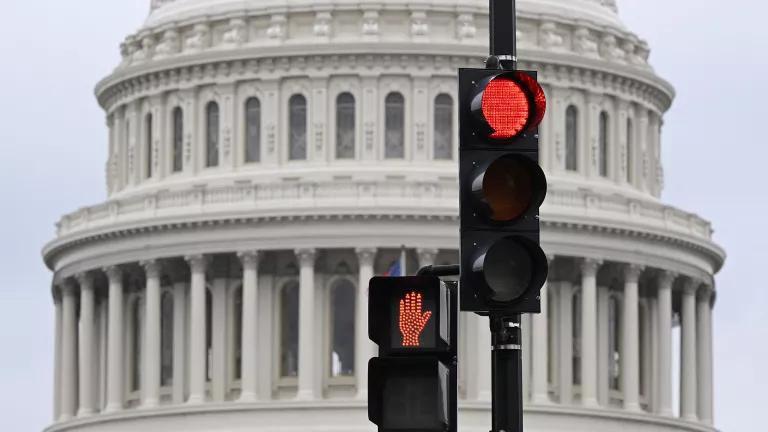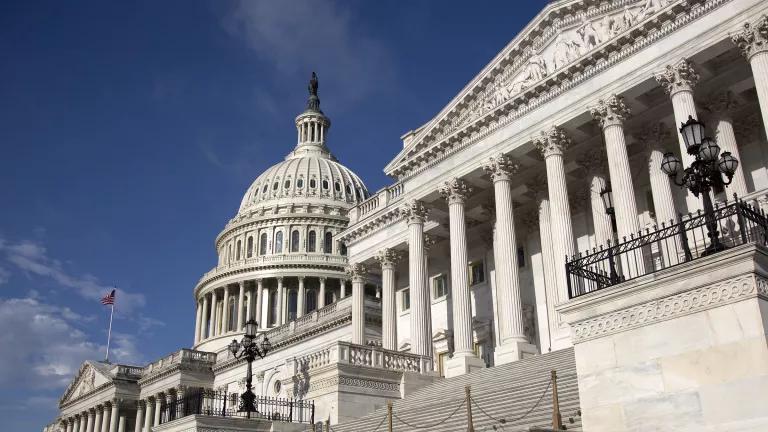Fifty years ago, Rachel Carson helped launch the modern environmental movement with the publication of Silent Spring. She was a woman ahead of her time who saw before others the urgent need to rid our nation, our bodies, and our ecosystems of toxic chemicals.
When she first raised the alarm, Carson was vilified by the chemical industry and the Agricultural Department and called "hysterical and unqualified.” Her information was described as "oversimplified” and “filled with downright errors and scary generalization."
Thanks to Carson’s fortitude and people’s outrage, the truth prevailed, and Congress finally banned DDT. Yet five decades later, industry-funded attacks on science continue unabated.
Just this spring, the Chicago Tribune exposed the joint efforts by the tobacco industry and chemical industry to drown out scientific evidence linking flame retardants to cancer, developmental delays, and fertility problems. Tobacco companies and chemical manufacturers flooded the field with industry-sponsored studies and publicized grossly misleading conclusions. They even hired a burn doctor who repeatedly lied during testimony, literally fabricating stories of small babies dying from fires.
Carson would recognize these anti-science tactics, especially those reaching all the way to Congress. Last year, the National Toxicology Program released the latest addition of the Report on Carcinogens, a congressionally mandated, science-based report identifying chemicals and substances that could increase the risk of cancer. The report listed formaldehyde as a carcinogen and styrene—a component in plastics as “reasonably anticipated” to cause cancer.
The report unleashed a wave of industry backlash. Chemical companies said the findings and methodology were flawed. The styrene industry is suing the Department of Health and Human Services. The industry is working with House Republicans to defund the report until the National Academy of Sciences can review the formaldehyde and styrene findings. And the American Chemistry Council wants to suspend the Report on Carcinogens entirely.
People respect and rely on the Report on Carcinogens. It is the government’s only document focused entirely on which substances cause cancer in humans, and independent scientists, health groups, workers, veterans, and businesses depend on its findings. Having the chemical industry shut it down is the equivalent of the tobacco industry calling a “suspension” of the surgeon general’s report on the health risks of smoking.
One way to combat industry’s anti-science campaigns is to have strong national toxics law. Unfortunately, the Toxic Substances Control Act passed in 1976 isn’t up to the job. When the law was passed, 62,000 chemicals were grandfathered in without testing. And rather than calling on chemical manufacturers to prove the safety of their products before use, TSCA requires the Environmental Protection Agency to prove that a chemical is unsafe before it can be restricted. In more than 30 years, the EPA has required testing of about 200 chemicals and partially regulated five.
We need a comprehensive reform of the Toxic Substances Control Act in order to put scientific evidence—and not chemical industry influence—at the heart of America’s safeguards against toxics.
A stronger version of the Toxic Substances Control Act would require all chemicals to be tested for safety and put the burden of proof on the chemical industry to demonstrate that a chemical is safe. It would establish safety standards for chemicals using the latest scientific knowledge to protect children and other vulnerable or over-exposed sub-populations. And it would promote innovation and transition to safer alternatives, including less dangerous chemicals and non-chemical alternatives.
Many lawmakers are committed to safeguarding our families from hazardous chemicals, yet in order to push back against industry influence, they need to know the American people are behind them. Click here to urge your senators to co-sponsor the Safe Chemicals Act.
Now more than ever, we must follow Carson’s example: listen to the research, raise our voices, and hold companies and politicians accountable.



